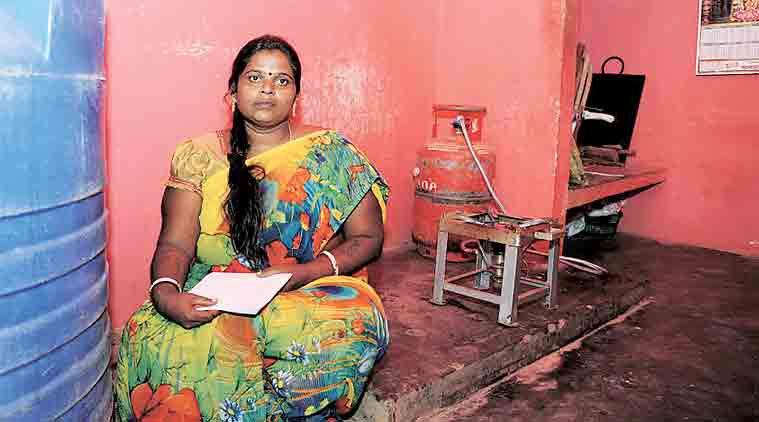The urban middle-class, along with those in political and economic power, has been claiming that there is an absence of caste-based discrimination not only today, but since time immemorial. This argument is an attempt to sweep the present-day atrocities, and a violent history of the caste system under the carpet. Such arguments firstly state, that there is no such thing as caste discrimination, and that it is manufactured by the political parties representing certain castes; secondly, the caste system is being justified by them as a system of “division of labor”.
With a rapid increase in the cases of atrocities committed against dalits in our times, and the dalit movement simultaneously gaining a greater momentum in the country, such arguments prove to be baseless and ill-founded. Kiran Gajanur, an activist of Dakshinayan, Karnataka, and a post-doctoral fellow at the Department of Political Science, Kuvempu University, shares two incidents that the state of Karnataka has witnessed in recent times, and reflects upon the dalit uprising that the state is witnessing.
Stories of a Dalit Cook and a Panchayat Member

Parvatamma,1 a Dalit woman belonging to Madiga community, was appointed as a cook in the mid-day meal scheme at the Government Higher Primary school in Kagganahalli, in Mulabagal taluk of Kolar district. The members of other communities in the village protested this appointment. The district administrators visited the school and the villagers to discuss the matter. As a result of it, the total strength of the school came down to 48 from 148 – hundred students dropped out of the school and joined another school. Parvatamma continued to work in the school, and the remaining 48 students also protested by not eating the food cooked by her. Parvatamma wrote, “no one ate the food today” every day in a dairy.

Shakunthala is a woman from the Koraga community, and a member of the gram panchayat of a village in Karavali region of Mangalore. She hosted her brother’s engagement dinner at her house in the village. The non-vegetarian feast prepared for the occasion became a reason for a brutal attack on Shakuntala’s family. The Bajarang Dal activists attacked the family claiming that they had cooked beef for the occasion. Udaya vani, a regional news paper noted that, three young men were physically assaulted, and Shakuntala was verbally abused by the men who kept referring to her caste.
Mr. Gajanur shares these two events in recent times in Karnataka to talk about the presence of caste-based discrimination in the state. He calls these two events a consequence of the dominance of “religious culturality” (Brahmanical upper caste hegemony) over the lower strata of the society (lower castes).
Responsibility of Scholars’ and Literary Community
Mr. Gajanur is optimistic about changes in the system. The literary history of Karnataka, as he states, was and is multi-religious and multi-cultural as it gave a platform to members from diverse backgrounds. As early as 11th century, the Basava movement through its Vachana sahitya was determined to protest every form of discrimination. Mr. Gajanur, anyhow, observes a wide gap between the intellectual community and the common people in the state of Karnataka today. This gap has proven itself to be a lacuna in the progressive resistance, as there seems to be no connection between the path of tolerance that the literary history of Karnataka had laid out and what is happening in present-day Karnataka. It is the responsibility of the intellectual community to speak to every person, communicating the progressive ideas and tolerance that Karnataka once stood for.
This is one of the ways in which the fascist forces in operation in the country today can be fought. Dakshinayan, a platform for progressive writers and thinkers, has created a space that is trying to connect progressive writers and thinkers to common people. Dakshinayan’s agenda is to unite all the anti-fascist and pro-democratic groups to fight religious, fundamental and capitalist forces.
Dakshinayan in Karnataka
The recent Dakshinayan gathering that was organised in Shimogga, comprised both young and leading writers of Karnataka, who are working in many ways to counter the fascist forces in the country. The gathering aimed at discussing contemporary issues in the state. It was a great success – with 600 members attending. Mr. Gajanur notes that this number is an indication of the unrest among individuals who want to fight the fascist groups. May festival, a literature festival in Dharwad, Jana Nudi organised by K.P. Suresh, the Chalos uniting all the anti-fascist forces, and pro-democracy individuals show that there are voices of resistance.
Dakshinayan is a platform for the coming together of various progressive movements, functioning within the frameworks of their respective ideologies. Leftist groups, women’s movements, peasant movements are brought together. Through the creation of platforms like Dakshinayan, Mr. Gajanur states that it is possible to fight the rapidly growing fascism in the country; and also strive for a just society that the Basava Movement and Vachana Sahitya worked for in the 11th century in Karnataka.
1. Parvatamma is the name that Mr. Kiran Gajanan uses. The other sources carrying the news say Radhamma.
Also read:




